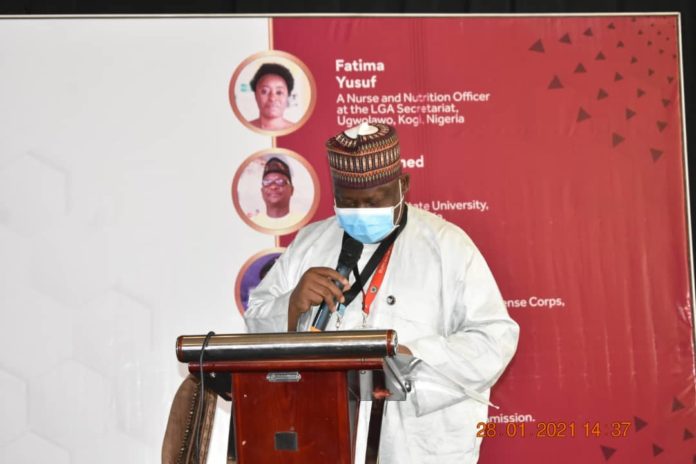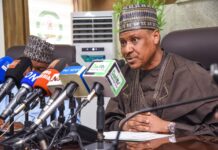The Director-General, Bureau of Public Service Reforms (BPSR), Mr. Dasuki Arabi has said that the new Nigeria National Strategy
for Public Service Reform (NSPSR) will provide a common vision for rebuilding and transformation of the federal public service in
the country.
He made this known while making a presentation at a meeting with Directors of Reform Coordination and Service Improvement
(DRC&SI) in MDAs held at the Budget Office of the Federation in Abuja on Tuesday.
Mr. Arabi said the strategy is primarily a coordinating mechanism that will help the ongoing reforms across the public service in
government Ministries, Departments, and Agencies (MDAs).
The DG said, “NSPSR’s development objective is to create an institutional and governance environment that enables Public
Service institutions to deliver public goods and services with integrity, transparency, and accountability and in accordance with
their mandates.
“This clearly identifies strategic sectors of government business, desiring reforms, the current weakness therein.
“Over the years, the Bureau through the Steering Committee on Reforms, Key Ministries, Departments and Agencies and some
Development Partners have recorded some key achievements in the Public Sector Reforms through the initiation and coordination
of key reforms across the Public Service.”
The DG also highlighted some of the key reforms initiated by his bureau to include: Development of Compendium of Reforms;
Introduction of Lunch Time Reform Seminar; Management of Legacy Issues emanating from Reforms; Public Perception Survey
on Reforms; Review and Update of National Strategy on Public Service Reforms (NSPSR); Institutionalization of Federal
Government Score Card for ranking of MDAs Website; Several Studies and Impact Assessment of Treasury Single Account
(TSA), Executive orders, Deployment of ICT in Reforming Agencies, Budget Reforms, etc.
He explained that the Office of the Head of the Civil Service of the Federation in March, 2014, established the Department of Reform
Coordination and Service Improvement.
The establishment according to him was informed by the need to mainstream government public service reform programmes and
sustain their implementation initiatives by bringing all such programmes under one umbrella to facilitate their effective implementations.
He added that, “The need to organize today’s meeting could not have come at a better time, especially with the various
experiences and perception of the Department of RC&SI at MDAs level. Due to its importance, if the Reform Coordination and
Service Improvement Department in the Public Service is not strategically positioned to take its place, it will become moribund, and morals of officers would be dampened.
“The challenges are surmountable only if coordinated efforts and zeal for success are deployed to resuscitate the Department.”
During the meeting, stakeholders present discussed key contemporary issues on reform and change management that
would improve communication network on reform programmes and policies, garner useful recommendations for effective and efficient service delivery; identified critical challenges of the RC&SI Departments in the MDAs and created a forum for active
exchange of ideas and sharing of experiences on reform issues and operations of the RC& SI Departments.





